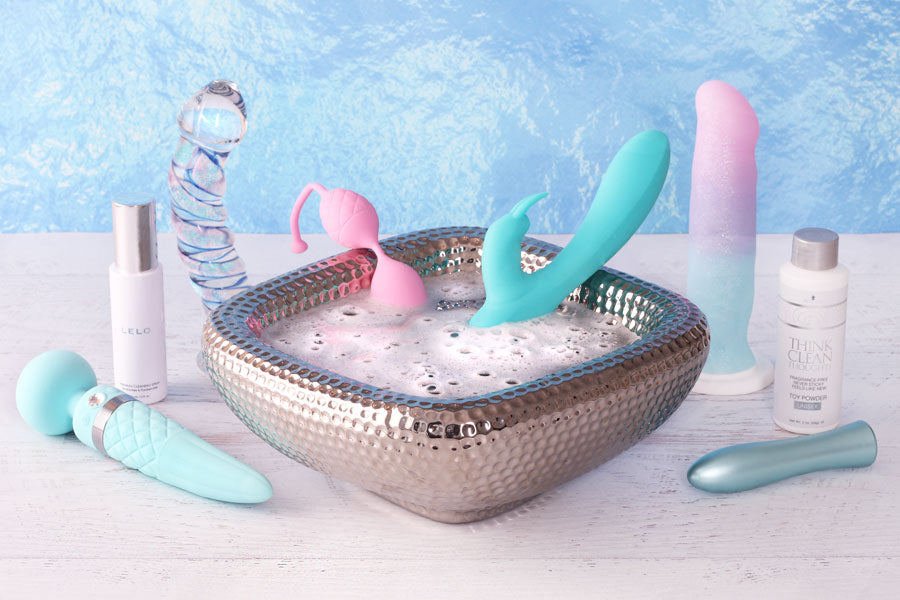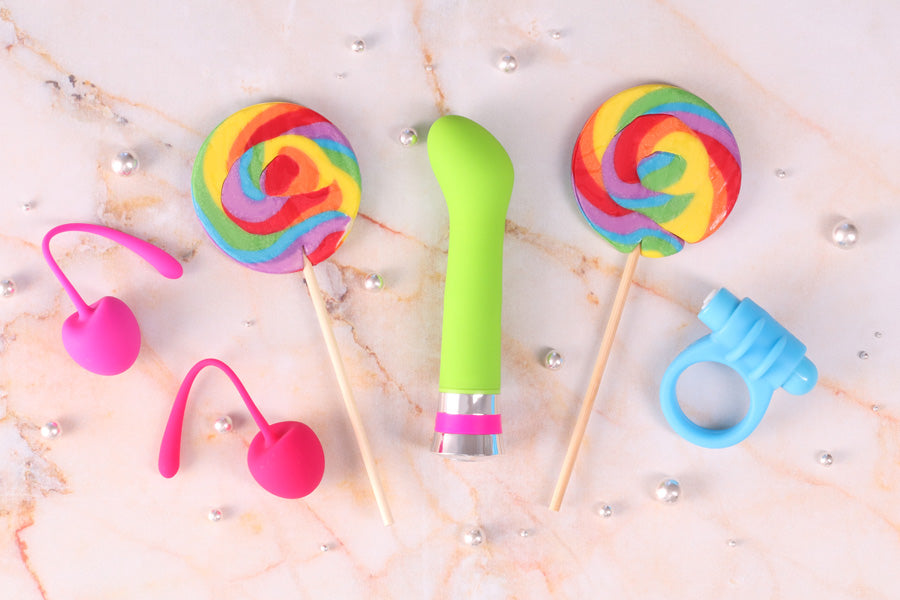Trusted for 25+ Years
How To Use Massage Candles

Dr. Lisa Lawless, CEO of Holistic Wisdom
Clinical Psychotherapist: Relationship & Sexual Health Expert
 What Are Massage Candles?
What Are Massage Candles?
Massage oil candles are a heavenly way to enjoy the ambiance that candles afford while enjoying warmed oil that you can drizzle onto your and your lover's skin. Enjoy a decadent treat that will feel amazing while providing healthy, soothing botanicals and moisturizers. Your skin will feel and smell wonderful. You can use your hands as well as body massager wands to massage the skin.
How To Use Massage Candles
Massage candles are very simple to use. They typically come with a small spoon inside them so that you can drizzle them onto the skin and rub the oils in. You can also use your fingers by dipping them. You may want to avoid letting the oil come out by tilting the candle as the oil can run down the side of the canister and become a fire hazard.
The silky oils will moisturize and absorb into the skin much like massage oil and can be reapplied as desired. To extinguish your candle, gently blow out the flame and contain any smoke with the jar's lid, or just put the lid over it to lock out air and extinguish the fire that way.
Use Them In The Bedroom Or The Bath
You can use massage oil candles around the bath and use them to moisturize skin in addition to sensual massages that you and a partner can partake in. Massage oil candles can be used as scented candles and use their oil to moisturize skin.
If you are concerned about getting oil on your sheets, make sure to check out our waterproof throws that allow you to protect bedding. See our Sensual Massage Techniques article for this and more information.
Massage Oil Candles With Pheromones
Please don't concern yourself with seeking out a massage oil candle with pheromones, as the science shows it is ineffective. Scents can have a positive effect, but the only pheromones that humans are attracted to are those our bodies create naturally. See our Sex Pheromones Guide for more information.
Choosing Healthy Candles
Scented candles have always been a special favorite of mine. When I was in my early twenties, I had an apartment that smelled like sweet raspberries because a candle that my supermarket sold was a favorite scent of mine, and thus, I had one burning most of the time.
After a couple of months of burning this beautiful-smelling candle, I noticed that my walls were turning a bit gray from the smoke. I wasn't sure why at the time, but now I know that what many candles burn is not only black smoke that gets over everything but has toxic chemicals in them.
Like many people, I was surprised that stores could sell candles with harmful toxins that they release into the air. They are more concerned with profit (because they can sell them with cheaper wax with toxins) than their customers' health.
The Dangers Of Paraffin Wax
Paraffin wax contains at least 11 documented toxins, and it is alarming to think that paraffin wax is used in almost 90% of all candles made today. Two of these toxins are toluene and benzene, which are known to be carcinogenic. When you burn paraffin wax from a candle, it produces some very unhealthy soot emissions. I also found out the candles I had been burning had a lead wick, which I will detail shortly. Let's just say, for the time being, lead poisoning.
Other Toxic Chemicals In Candles
What other toxins could be lurking in your paraffin candles? How about these, just to name a few: Acetone, Benzene, Carbon disulfide, Chlorobenzene, Ethylbenzene, Styrene, Trichlorofluoromethane, Xylene, Phenol, Cresol, Cyclopentene, Lead.
There are only three candle waxes that we recommend: soy, beeswax, and vegetable-based.
Why Soy Candles?
- Soy wax is made from a renewable resource, natural soybeans. These little guys are grown right here in the USA, so purchasing soy candles is an excellent way to support American farmers and families.
- Soy wax is nontoxic and an excellent choice for those wishing to burn environmentally friendly candles.
- It is water-soluble and can easily be removed from the container.
- Soy wax burns longer and more uniformly, so every candle has an even burn pool.
- Candles made of soy wax burn 30% longer than any paraffin candle.
- Soy wax will leave your candle containers and walls free from the black soot.
- Check for GMO labeling, however, as 75% of soy is from GMO seed.
Beeswax & Vegetable Wax
Beeswax is the only naturally occurring wax, and it is nontoxic when burned. They also naturally give off the faint smell of honey. Vegetable wax is also a nontoxic alternative and is typically made from palm wax. The oil comes from the fruit bunches of the Palm.
Phthalates In Candles
If your candles have a fragrance and do not say phthalates free, you may be inhaling toxins. Look for fragrance-free or organic options that use pure essential oils. If a manufacturer does use synthetic fragrances, then make sure they are phthalate-free. Today's most safe fragranced candles carry a mixture of natural, high-quality essential oils and safe synthetic fragrance ingredients.
Lead-free Cotton Wicks
One of the biggest health concerns is lead wicks. Because wicks would droop, manufacturers sometimes put metal cores inside the wick. These are most often lead wires and can lead to serious lead poisoning. Symptoms include but are not limited to brain damage, muscle weakness, abdominal pain, nausea, vomiting, diarrhea, and constipation. If the candle is burned in the home, the lead soot can get on everything, and children are more vulnerable to it as they put their hands in their mouths after touching furniture, the floor, and walls. Make sure you only buy candles that have lead-free, cotton wicks.
The Massage Oil Candles Candles We Carry
We are proud that the manufacturers that make the candles we carry have reported them to be free of paraffin wax, lead, phthalates and are all made with soy, beeswax, or vegetable wax. They use the best ingredients, and they smell and feel fabulous on your skin.




